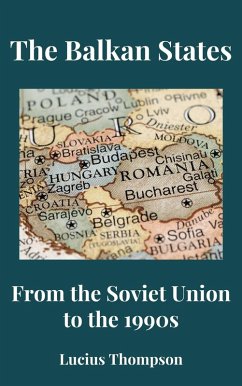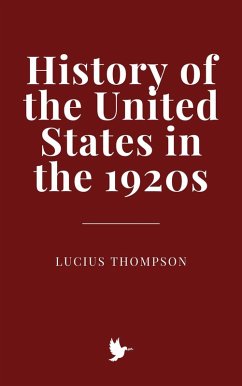
The European Economic Community: From the Common Market to the European Union (eBook, ePUB)

PAYBACK Punkte
0 °P sammeln!
The European Economic Community (EEC), established in 1957 by the Treaty of Rome, was a landmark initiative aimed at fostering economic cooperation and political unity in post-war Europe. Its creation marked the beginning of a profound transformation for Europe, enabling member states to transcend nationalism and build a foundation for sustained peace and prosperity. This book explores the historical development, economic policies, and political significance of the EEC, tracing its evolution into the European Union (EU) and its lasting impact on Europe and the world.Initially founded by six We...
The European Economic Community (EEC), established in 1957 by the Treaty of Rome, was a landmark initiative aimed at fostering economic cooperation and political unity in post-war Europe. Its creation marked the beginning of a profound transformation for Europe, enabling member states to transcend nationalism and build a foundation for sustained peace and prosperity. This book explores the historical development, economic policies, and political significance of the EEC, tracing its evolution into the European Union (EU) and its lasting impact on Europe and the world.
Initially founded by six Western European nations-France, West Germany, Italy, Belgium, the Netherlands, and Luxembourg-the EEC was designed to create a customs union, a common market, and a unified agricultural policy. Over the decades, the EEC expanded its membership and deepened its economic integration, culminating in the creation of the Single Market and the introduction of the euro. By eliminating trade barriers and promoting the free movement of goods, services, people, and capital, the EEC laid the groundwork for Europe's economic prosperity and global influence.
The book also examines the institutional framework of the EEC, including the roles of the European Commission, the Council of Ministers, the European Court of Justice, and the European Parliament. It highlights the EEC's significant achievements, such as the Common Agricultural Policy (CAP), the European Monetary System, and the development of regional and social cohesion policies aimed at reducing economic disparities.
Furthermore, this work delves into the EEC's role in shaping global trade through its participation in the General Agreement on Tariffs and Trade (GATT) and its complex relationships with major global actors such as the United States, Japan, and developing countries. The EEC's influence in promoting trade liberalization and setting global standards is also explored, alongside its efforts to support development in former colonies and regions.
As the EEC evolved into the European Union in 1993, its legacy as a force for peace, economic integration, and political cooperation continued to shape Europe's future. This book reflects on the EEC's enduring impact, highlighting its role in fostering a unified Europe that remains a key player in global politics, economics, and diplomacy. By examining the EEC's contributions to Europe's recovery and development, the book provides a comprehensive understanding of how the EEC shaped modern Europe and its position in the world today.
Initially founded by six Western European nations-France, West Germany, Italy, Belgium, the Netherlands, and Luxembourg-the EEC was designed to create a customs union, a common market, and a unified agricultural policy. Over the decades, the EEC expanded its membership and deepened its economic integration, culminating in the creation of the Single Market and the introduction of the euro. By eliminating trade barriers and promoting the free movement of goods, services, people, and capital, the EEC laid the groundwork for Europe's economic prosperity and global influence.
The book also examines the institutional framework of the EEC, including the roles of the European Commission, the Council of Ministers, the European Court of Justice, and the European Parliament. It highlights the EEC's significant achievements, such as the Common Agricultural Policy (CAP), the European Monetary System, and the development of regional and social cohesion policies aimed at reducing economic disparities.
Furthermore, this work delves into the EEC's role in shaping global trade through its participation in the General Agreement on Tariffs and Trade (GATT) and its complex relationships with major global actors such as the United States, Japan, and developing countries. The EEC's influence in promoting trade liberalization and setting global standards is also explored, alongside its efforts to support development in former colonies and regions.
As the EEC evolved into the European Union in 1993, its legacy as a force for peace, economic integration, and political cooperation continued to shape Europe's future. This book reflects on the EEC's enduring impact, highlighting its role in fostering a unified Europe that remains a key player in global politics, economics, and diplomacy. By examining the EEC's contributions to Europe's recovery and development, the book provides a comprehensive understanding of how the EEC shaped modern Europe and its position in the world today.
Dieser Download kann aus rechtlichen Gründen nur mit Rechnungsadresse in A, B, CY, CZ, D, DK, EW, E, FIN, F, GR, H, IRL, I, LT, L, LR, M, NL, PL, P, R, S, SLO, SK ausgeliefert werden.













